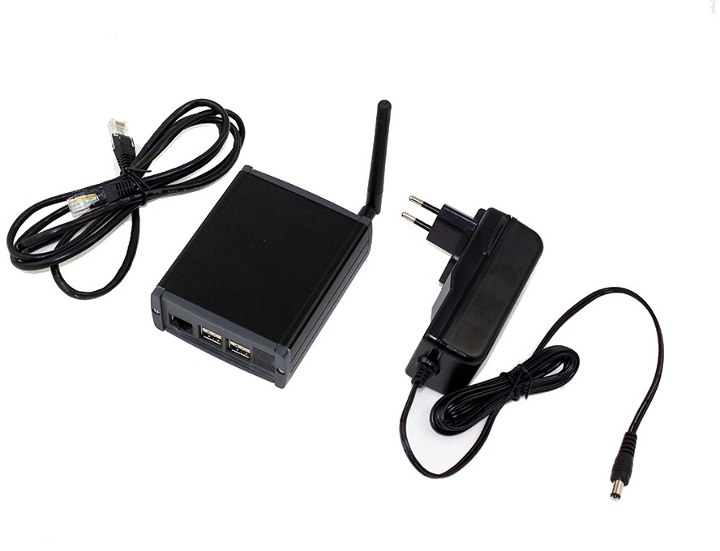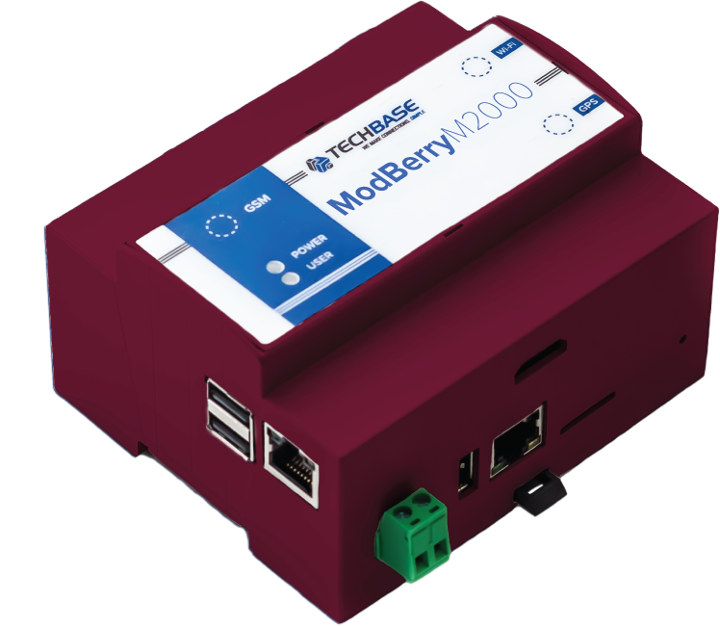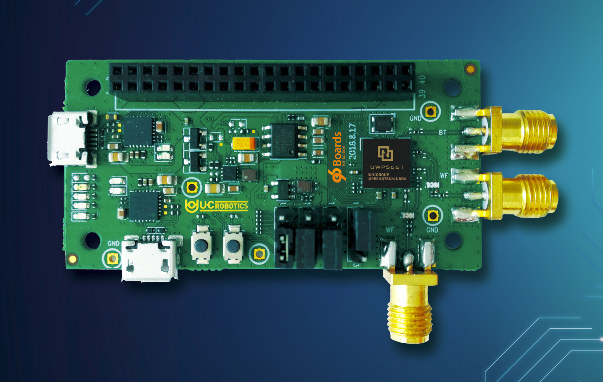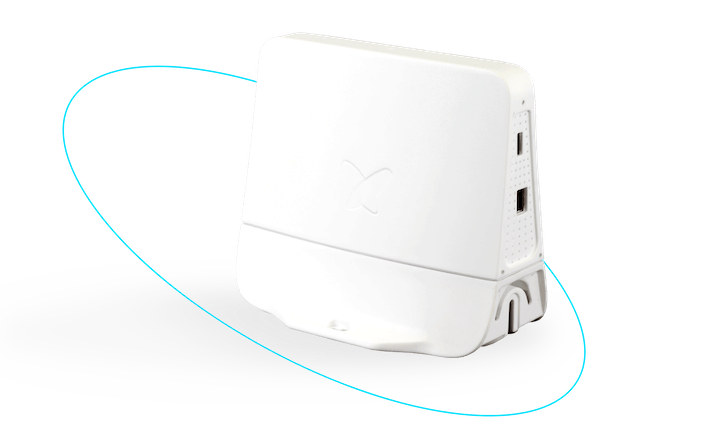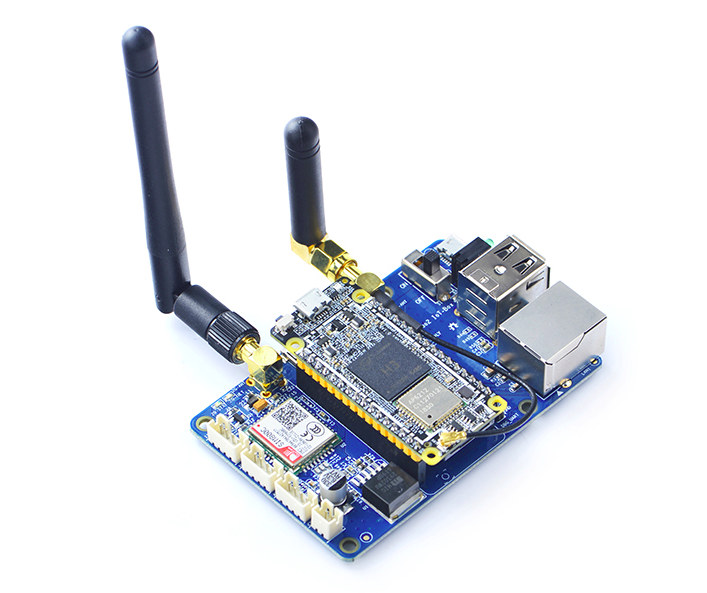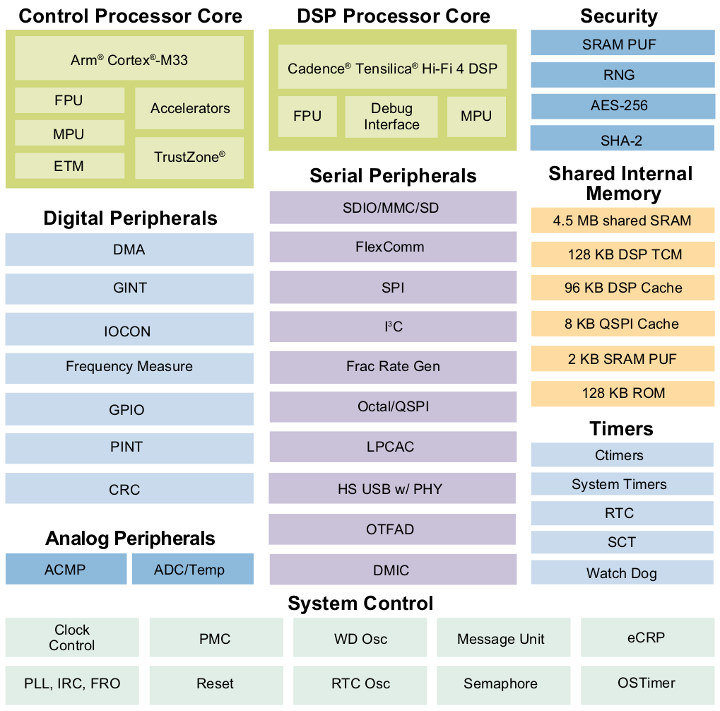Arduino has just introduced the Arduino PRO Gateway for LoRa based on Raspberry Pi 3 development board, a LoRa gateway mPCIe module, and a metal enclosure. The strange thing about this product is that it does not feature any Arduino MCU, so why did Arduino design it? That’s because it works as a LoRa gateway for their Arduino MKR WAN 1300 IoT nodes. The gateway is sold as a kit with a LoRa gateway Embit EMB-LR1301-mPCIe card with SX1301 baseband chipset, an adapter for Raspberry Pi, an aluminum enclosure, a Raspberry Pi 3 model B+, a 5V power supply, an Ethernet cable, and an external antenna. Specifications for the LoRa part of the gateway: Chipset – Semtech SX1301 Modulation – LoRa Spread Spectrum, FSK, GFSK 868MHz (EU) / 915MHz (US) Number of Channels – 8 LoRa Channels Operating Frequency – 868MHz (EU) / 915MHz (US) Frequency Range – 860MHz to 1020MHz Operating […]
Giveaway Week – ThaiEasyElec 3G Raspberry Pi HAT
You’ll need a 40-pin Raspberry Pi board for this giveaway. Quectel UC20 based ThaiEasyElec 3G Raspberry Pi HAT adds 3G / 2G connectivity to the popular development board. I”l send the board with the full kit include GPS/GLONASS antenna, cellular antenna, headers and spacers. I explained how to use the board in “How to Use 3G and GPS on Raspberry Pi” post, and I found that it was pretty easy working with GPS and 3G using Hologram SIM card by following the instructions provided by ThaiEasyElec. I could also find alternative connection method for this type of board on the Internet. To enter the draw simply leave a comment below. Other rules are as follows: Only one entry per contest. I will filter out entries with the same IP and/or email address. Contests are open for 48 hours starting at 10am (Bangkok time) every day. Comments will be closed after […]
ModBerry M2000 Industrial Computer Features UP Squared Apollo Lake Board
TECHBASE has been providing DIN rail mountable Arm and x86 based Modberry industrial computers / IoT gateways for several years. The company has now upgraded ModBerry M1000 model with an Intel Cherry Trail UP board to ModBerry M2000 computer featuring AAEON UP Squared board powered by either an Intel Celeron N3350 dual core processor, or Pentium N4200 quad core processor, both part of Intel’s Apollo Lake family. ModBerry M2000 specifications: SoC (one or other other) Intel Celeron N3350 dual core processor @ 1.10 / 2.40 GHz with Intel HD Graphics 500; 6W TDP Intel Pentium N4200 quad core processor @ 1.10 / 2.50 GHz with Intel HD Graphics 505; 6W TDP System Memory – 2, 4, or 8GB RAM Storage – 16, 32, 64, or 128GB eMMC flash, SATA connector and M.2 SATA socket Video Output – 1x HDMI Connectivity – 2x Gigabit Ethernet, with optional LTE/3G, WiFi, ZigBee, LoRa, […]
96Boards IoT Edition IVY5661 Board Features UniSoC UWP5661 WiFi 5 + Bluetooth 5 SoC
If you ever wanted to start a new IoT project with WiFi and Bluetooth connectivity, you’d like think about using Espressif ESP32 WiSoC that supports single band 802.11 b/g/n WiFi (WiFi 4) and Bluetooth 4.2 LE thanks to great community and software support on top of the ultra low cost of the solution. But in case your require 802.11ac (WiFI 5) – yes, I’m trying hard to get used to the new WiFi naming scheme for consumers -, or Bluetooth 5, Espressif Systems does not offer such solution yet. Instead you may consider UniSoC UWP5661 Arm Cortex-M4 WiSoC with WiFi 5 & Bluetooth 5 connectivity that will be found in the soon-to-be-launched UcRobotics IVY5661 96Boards IoT Edition board. I could not find lots of information about UWP5661 chip tself, so let’s jump directly to IVY5661 board specifications: SoC – UniSoC UWP5661 dual core Arm Cortex-M4 microcontroller @ 416 MHz manufactured […]
Sigfox Introduces Access Station Micro Sigfox Gateway
There are plenty of long range LPWAN standards for the Internet of Things, but the most common ones include LoRaWAN, NB-IoT, and Sigfox. LoRaWAN lead the way in terms of deployments, while NB-IoT and eMTC leverage existing cellular infrastructure but cost a bit more to operate. Sigfox works with $2 modules, but AFAIK so far you had to subscribe to the company network, and if your area was not covered you were out of luck. Sigfox Access Station Micro gateway promises to change the situation, as companies can now add their own Sigfox gateway(s) where coverage is not available, and this could make Sigfox more popular, especially if one or more communities similar to The Things Networks form(s) around it. Sigfox Access Station Micro SMBS-T4 specifications: Radio characteristics: Standard – Sigfox Ultra Narrow Band Protocol for M2M and IoT Max range of operating frequencies – 865 to 928 MHz Max […]
Embedded Recipes 2018 Videos and Slides Released
Embedded Recipes 2018 happened in Mozilla building in Paris, France on September 24 & 25, where developers talked about “open source solutions in the embedded world: developer, contributor, tools, platforms…” We previously mentioned the event in a post about an open source video decoder driver for Amlogic S905, S905X and S912 processors with BayLibre scheduled to talk about their work there. There’s now released slides and videos for the event for all sessions including: SoC+FPGA support in 2018 by Marek Vasut Shared memory and telemetry by Yves-Marie Morgan Updating an embedded system with swupdate by Charles-Antoine Couret Finding sources of latency in your system by Steven Rostedt Io(M)T Security: A year in review by Rayna Stamboliyska Using yocto to generate container images for yocto by Jérémy Rosen linuxboot by Jean-Marie Verdun and Trammell Hudson End-to-end software production for embedded by Guy Lunardi WooKey: the USB Battlefront Warrior by Mathieu Renard, […]
Tiny NanoPi Duo2 Board Comes with WiFi, a Camera Interface, an Optional 2G-IoT Dock
NanoPi Duo was launched last year as an ultra-cheap ($8+) Arm Linux board that fits into a breadboard. The board was powered by Allwinner H2+ processor coupled with 256 or 512MB RAM, and the infamous XR819 802.11b/g/n WiFi chip. FriendlyElec has now launched NanoPi Duo2, that’s still breadboard compatible, but with a slightly longer form factor, Allwinner H3 processor, 512 MB RAM, better WiFi thanks to an AP6212 module, and an extra camera interface. As we’ll see further below the company also developed a carrier board for 2G cellular IoT applications. NanoPi Duo2 specifications with highlights in bold showing differences again NanoPi Duo: SoC – Allwinner H3 quad core Cortex A7 processor @ 1.2 GHz with Mali-400MP2 GPU System Memory – 512 MB DDR3 SDRAM Storage – micro SD card slot, footprint for SPI flash Connectivity – 802.11 b/g/n WiFi + Bluetooth 4.0 LE (Ampak AP6212 module) with chip antenna, […]
NXP Unveils i.MX RT600 Series Arm Cortex-M33 + Audio DSP Crossover Processor
A little over a year ago, NXP introduces their first crossover processor that blurs the line between real-time capabilities of microcontrollers and higher performance of application processors with NXP i.MX RT1050 processor equipped with a Cortex-M7 core clocked at up to 700 MHz. The company has now announced another model with lower power consumption. NXP i.MX RT600 series comes with a Cortex M33 core clocked at up to 300MHz, a Cadence Tensillica HiFi 4 audio DSP, and up to 4.5MB shared SRAM. Main features of NXP i.MX RT685 crossover processor: CPU Core – Arm Cortex-M33 up to 300 MHz DSP – Tensilica Hi-Fi 4 up to 600 MHz Memory Up to 4.5 MB on-chip RAM 128KB DSP TCM, 128 KB DSP Cache Storage 96KB ROM on-chip 2x SDIO with 1x supporting eMMC5.0 w/ HS400 1x Octal/Quad SPI up to 100MB/s Peripherals 2x DMA Engines with 35 channels each 1x USB […]


